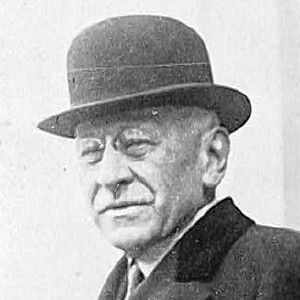Guest columnist John Varner: Opposing Leverett megaproject only common sense

The sprawling Kittredge estate in Leverett, built by Yankee Candle founder Michael Kittredge, who died in 2019. FILE PHOTO
|
Published: 01-17-2024 7:17 PM
Modified: 01-25-2024 11:04 AM |
While it is true that racism has been behind some zoning restrictions, racism is not the only reason zoning restrictions exist.
Is all zoning racist? This is certainly what some real estate people want you to think, based on nearly a full page of their comments in the Gazette and Bulletin regarding potential development of the Kittredge estate in Leverett. More broadly, they made claims that small town zoning regulations are ipso facto discriminatory if they include features such as lot size limits and restrictions on multifamily housing.
This begs many more questions: What does it mean to “live in the land of opportunity”? Is the notion of working hard to buy a property one can protect and invest not just money but physical work, time and love in, inherently racist? Are people who do not want to live in urban congestion, noise, pollution, etc. actually just crypto-racists?
Are communities of like-minded people necessarily discriminatory? Do we have to resort to some sort of societal lottery system to assign housing “fairly,” and at what income level would people of wealth be able to buy their way out of it?
I reject the idea that protecting my third of an acre, my 1960s ranch house, and the little neighborhood I live in from the encroachment of investor-owned student houses is racist or elitist, which some local pro-development pols have implied. Furthermore, the idea that a proposed development that includes an existing multimillion-dollar sports building and a palatial mansion is going to be “mixed-income housing” sounds like more developer poppycock.
As investment LLCs and people of extravagant means corner the real estate market, renters are being squeezed, and many working families can no longer afford the dream of homeownership as investors pay cash well above the asking price to buy houses for rental conversions.
More than a fifth of all houses nationally last year were sold to investors. This does not bode well for equality and stability. The ability of working-class families to own their own homes is an economic buffer against the societally corrosive consolidation of wealth we are now witnessing.
Article continues after...
Yesterday's Most Read Articles
 Granby Bow and Gun Club says stray bullets that hit homes in Belchertown did not come from its range
Granby Bow and Gun Club says stray bullets that hit homes in Belchertown did not come from its range
 Super defers Amherst middle school principal pick to successor; one finalist says decision is retaliation for lawsuit
Super defers Amherst middle school principal pick to successor; one finalist says decision is retaliation for lawsuit
 ‘Home away from home’: North Amherst Library officially dedicated, as anonymous donor of $1.7M revealed
‘Home away from home’: North Amherst Library officially dedicated, as anonymous donor of $1.7M revealed
 Political newcomer defeats Shores Ness for Deerfield Selectboard seat
Political newcomer defeats Shores Ness for Deerfield Selectboard seat
 A DIY approach to flying: Local pilots build and help build their own aircraft
A DIY approach to flying: Local pilots build and help build their own aircraft
 Back to the screen: Amherst authors’ popular ‘Spiderwick Chronicles’ gets a new streaming adaptation
Back to the screen: Amherst authors’ popular ‘Spiderwick Chronicles’ gets a new streaming adaptation
Seeing flaws in the scheme to develop a woodsy Xanadu into a housing complex of 700 units is not inherently racist. It is a plea for reason, and for fairness for the residents who currently call Leverett home.
Leverett has a total population of less than 1,900. The average American household in 2022 had 2.5 people, which means that a 700-unit development would add approximately 1,750 people to the town, nearly doubling its population. It would greatly overburden the local elementary school, the water and sewer hookups (to be requisitioned from Amherst), the police and fire coverage, and the roads near the development.
Many small towns have gotten on the development-as-salvation treadmill, only to find they have sacrificed what they had for an endless game of fiscal catch-up, trying to finance basic infrastructure projects and additional demands for various services that a rapid jump in population spawns. More insidiously, it would distort the politics of the town, which still sets priorities and spending through Town Meeting.
In essence, it would destroy the civic structure and character of a small town about to celebrate its 250th birthday. Speaking out against that is being labeled as “racist” or “elitist” primarily by people who make a lot of money off development, urbanites wishing to offload some of their population to outlying towns, and people of a political bent that see racist evil everywhere, and whose remedies primarily and adversely affect middle-class residents.
The Kittredge family and their prospective developers do have options. The $23 million price tag for the Leverett estate, which is grossly under-assessed at around $10.5 million, is “walking around money” for people in that income bracket.
After selling the family business of Yankee Candle for nearly half a billion dollars a few years ago, waiting for another buyer is hardly an economic hardship. Better yet, developing the estate into a senior living community or an arts or environmental or cultural education center would enhance the community while demanding less in terms of infrastructure investment.
A couple of decades ago, the Kittredge estate was assembled by purchasing several perfectly good private homes and demolishing them for their acreage. The family now has a choice in their plans for getting rid of the family estate: to be known for helping to degrade Leverett and snarling traffic in North Amherst, or for enhancing the town their father chose as his home.
John Varner lives in Amherst.

 Guest columnist Rudy Perkins: Dangerous resolution pins ‘aggression’ on Iran
Guest columnist Rudy Perkins: Dangerous resolution pins ‘aggression’ on Iran Richard S. Bogartz: What the ghosts of Warsaw Ghetto know
Richard S. Bogartz: What the ghosts of Warsaw Ghetto know Guest columnist Dr. David Gottsegen: Age issue not so key as question of marbles
Guest columnist Dr. David Gottsegen: Age issue not so key as question of marbles Guest columnist Martha Hanner: Spirit of philanthropy can uplift so many others
Guest columnist Martha Hanner: Spirit of philanthropy can uplift so many others